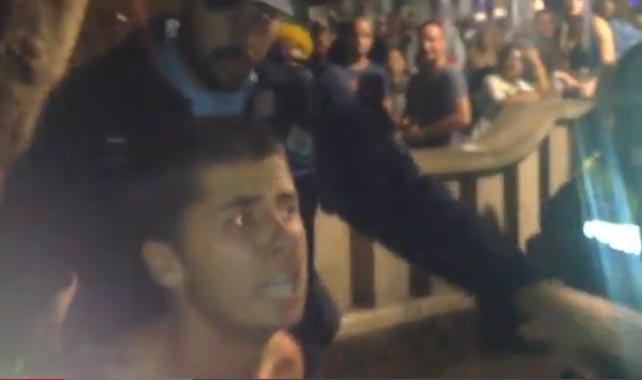
Sadly, the international headline-making incident whereby a New South Wales police officer was filmed forcefully handling gay teenager, Jamie Jackson, has become the major story of an otherwise celebratory and incident-free 2013 Sydney Gay & Lesbian Mardi Gras. Since the upsetting footage went viral prompting a surge of criticism about the seemingly unnecessary heavy-handedness used to subdue Jackson, Sydney police have launched an internal investigation; and last night the 18-year-old Mardi Gras-goer appeared on A Current Affair to give his side of the story.
According to Jackson, after he “tickled” a girl in the crowd (presumably a stranger) he was approached by police who accused him of assaulting her. Jackson says “yes, I shouldn’t have approached someone I didn’t know, but in saying that I don’t know how it even got to this point.”
Watch the interview below.
There is no Australian law preventing the public from filming the police. Crikey published an article on this topic in 2011, including information from the NSW Police who said “Police do not have the power to prevent anyone from photographing or filming them and cannot confiscate camera equipment or delete images and recordings.”
The article continues:
A few – the AFP, the WA Police and the Queenslanders – noted that if filming obstructs police, they may ask for it to be stopped. NSW noted other possible exceptions, “including under anti-terrorism legislation and if the filming or photographing constitutes an offence such as offensive conduct”. Queensland Police, however, opened a door to police seizing phones: “There are occasions when photographs or video taken during a police action may form evidence in an investigation, and officers will take steps to secure that evidence if necessary.”
UPDATE: Pedestrian commenters turned our attention to this footage that alleges to contain the original incident (it is yet to be verified by Jackson or police). The Youtube user posted the video with the title “ORIGINAL MARDI GRA INCIDENT, SHOWS GUY HITTING COPS FIRST!” Take a look at the footage and weigh in.



